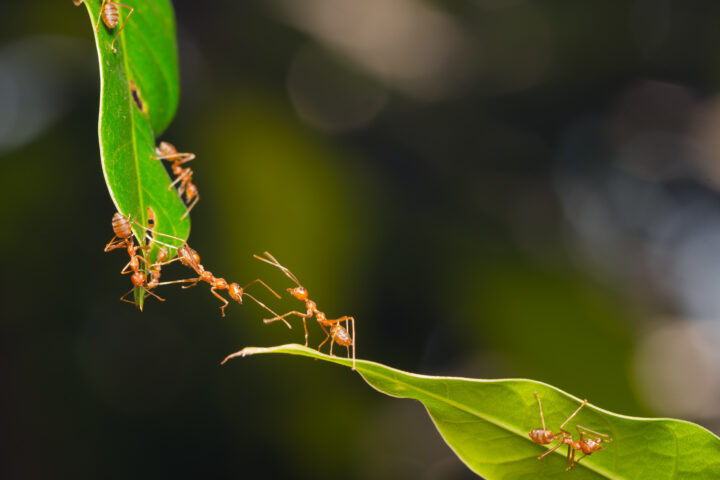
Urban beekeeping is endangering biodiversity
Beekeeping is booming in Swiss cities. Urban residents want to make a contribution to the conservation of the honeybee. However, a study by the WSL research institute shows that the amateur beekeeping is not sustainable. It endangers biodiversity in cities, as honey bees increasingly displace wild insects.
Monday, March 7, 2022
As the "Tages-Anzeiger" writes, wild insects such as butterflies or wild bees find almost no food anymore in urban areas due to the high bee population density. In many cities, green spaces are not enough to provide honey bees with enough food. This is the result of a study by the Swiss Federal Institute for Forest, Snow and landscape Research (WSL). Between 2012 and 2018, according to the authors, the number of urban hives has increased from 3139 to 9370 – that is a tripling in just six years. Study author Joan Casanelles Abella says in a media release from the WSL: "The key message of our results is that the green areas cannot keep up with the existing density of the hives."
Better regulation required
The authors of the study see the findings as proof of a need for regulation of beekeeping in urban areas. A sustainable strategy is needed. This includes, for example, regulating the number of beekeeping sites and the density of hives. Such rules are currently completely lacking. However, an improvement of the food supply for insects in cities – for example, a better range of flowers or upgraded habitats for pollinators – is also needed. In the end, according to the study authors, people also need to be better informed. Honey bees are farm animals. The beekeeping is an agricultural activity: "People often perceive honeybees as wild animals because they live freely and move freely. In reality, however, they are kept and bred in the same way as other farm animals. As for the latter, humans must also provide a sufficient supply of food for honey bees," says Casanelles Abella.
Blindspot article
Honey bee not threatened
Because the honeybee is a farm animal and is mostly kept by humans, it is not threatened by extinction, contrary to many representations in the media. Too many honey bees can, as described, even become a threat to wild bees. In contrast to honeybee, many species of wild bees and other pollinators are at risk of extinction. According to "bienen.ch", 40 percent of Swiss wild bees are currently at risk of extinction. The most important reason for this is the progressive loss of suitable habitats. To help the wild bees, there are more sensible measures for urban bee-lovers than breeding honey bees. For example, planting native plant species or creating suitable nesting sites.
Sources
Related articles

Ant infestation threatens Zurich communities
An invasive ant from the Mediterranean region is spreading rapidly in the canton of Zurich, threatening communities, construction projects, and agriculture. Insecticides could help—but their use remains severely restricted.

Genetic scissors for the future – soon in Switzerland too?
Genome editing is seen as a promising way to make agriculture more sustainable and climate-resilient. But Switzerland is hesitant to approve it. A popular initiative even wants to ban it. But what can CRISPR really do?

Less than 50 percent: How Switzerland is squandering its self-sufficiency
Swiss agriculture is under enormous pressure. Extreme weather conditions, pests and increasingly stringent regulations are putting producers under strain. As a result, self-sufficiency is falling dramatically, especially for plant-based foods. To ensure food security in Switzerland, effective plant protection products are urgently needed.

Only half the truth in the genetic engineering debate
Those who only see the risks remain blind to the opportunities offered by a new technology. Opponents of genetic engineering have presented a new survey on new breeding methods, which reveals some telling gaps.

